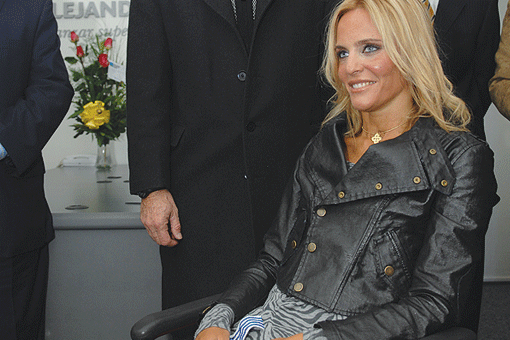Uruguayan soccer star Diego Forlán’s riveting performance at this summer’s World Cup in South Africa demonstrated his stature as an athlete. But his work off the field is equally impressive: at 31, he is Uruguay’s biggest traffic safety and disability rights advocate. Diego’s sister, Alejandra, was paralyzed in a 1991 car wreck and, after the tragedy, Diego dedicated his career to helping her live a comfortable life. The two siblings founded the Montevideo-based non-profit Fundación Alejandra Forlán, in 2009.
Alejandra’s story is not uncommon in Uruguay, a country of 3.5 million that in 2007 suffered 400 deaths and 20,000 injuries from car accidents—one of the highest rates in the region. The organization takes a two-pronged approach to combatting siniestros (traffic accidents): prevention and rehabilitation. The Punto Muerto program takes Alejandra to schools nationwide to tell her story to Uruguayans aged 15 to 17, an age when youth begin to drive and consume alcohol, and are prone to car accidents. Punto Muerto helps students “realize that an accident like Alejandra’s can change your life forever” says communications director María José Giró.
The second approach is clinical. Staff psychologists travel to hospitals to help victims in the weeks after accidents. Donors like health care provider Medicina Personalizada and public relations firm Publicis-Impetu help pay for treatment and enable the foundation to extend its care to low-income patients.
Fundación Alejandra Forlán is already changing the way young Uruguayans think about driving. Now they want to expand their programs and work to help pass stronger national traffic safety legislation in Uruguay.






